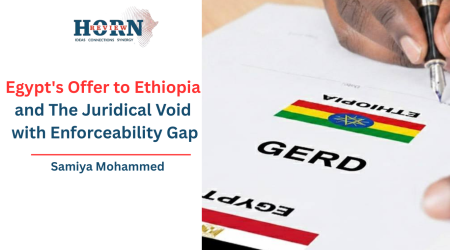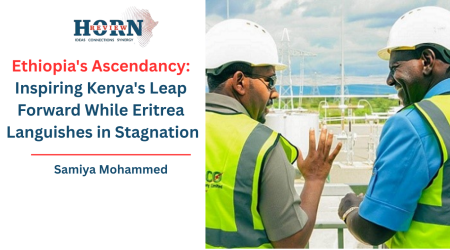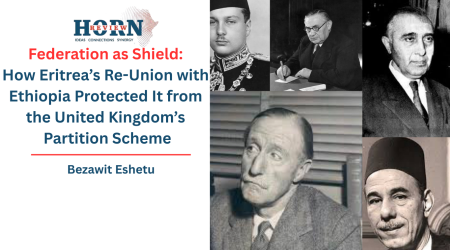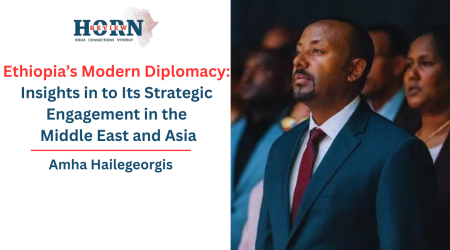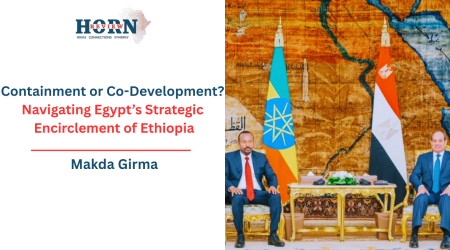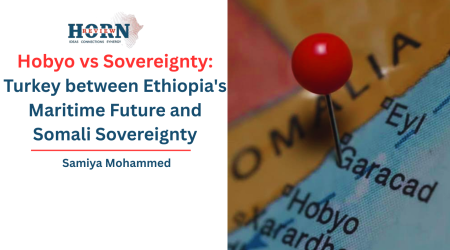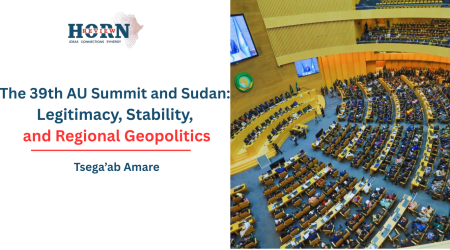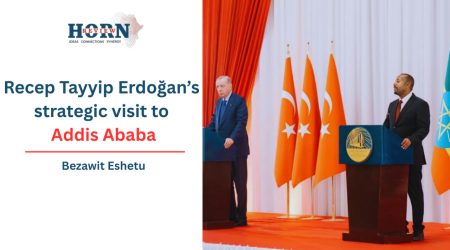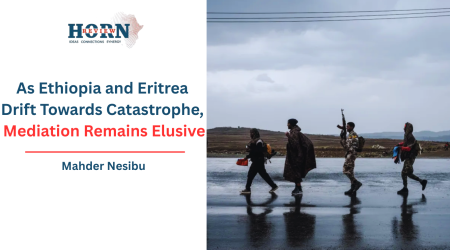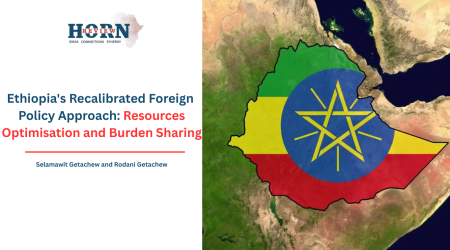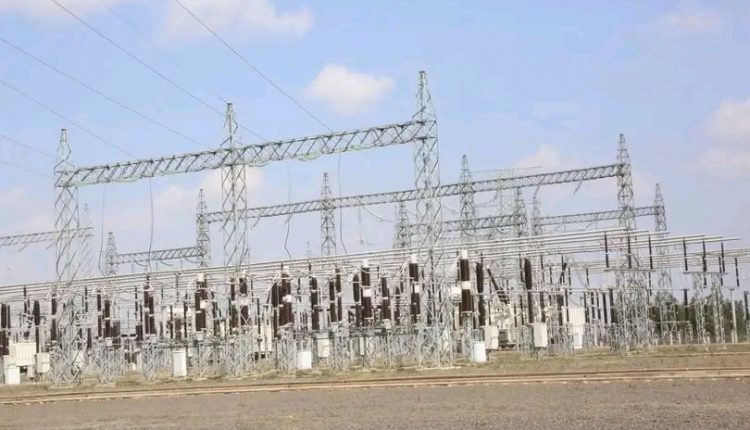
3
Sep
Contextual Drivers of Ethiopia’s Foreign Policy: Between Domestic Challenges and Strategic Continuity
Ethiopia’s foreign policy has long reflected the dialectic between internal political orders and shifting international systems. From its defiance of colonial subjugation to its early role in multilateral institutions, Ethiopia has historically sought to project influence while navigating domestic fragility.
The landmark 2002 Foreign Affairs and National Security Policy and Strategy (FANSPS) codified a new paradigm, identifying internal development as the foundation of national security. It redefined diplomacy as an extension of internal reform, and national pride as a function of modern success, not ancient glory.
Yet in the years since Prime Minister Abiy Ahmed assumed office in 2018, the very internal cohesion that FANSPS deemed essential to external projection has faced notable strains.
Ethiopia’s ethnic federal system, evolving political competition, and localized armed conflicts have reshaped the domestic environment. As the country enters a new phase in its national trajectory, the drivers of its foreign policy are adapting in ways that are both complex and, at times, contradictory.
2002 FANSPS: The Inward-Looking Turn and Reimagined National Security
The 2002 policy was more than a foreign affairs manual; it marked a philosophical and strategic departure from previous eras. In contrast to the Cold War era of siege mentality and the Derg’s ideological alignment with Soviet socialism, FANSPS identified Ethiopia’s most pressing threats as internal: poverty, underdevelopment, and institutional fragility.
Development was elevated as the central pillar of national security. Diplomacy was to serve domestic transformation, mobilizing trade, aid, and investment to accelerate modernization.
FANSPS also redefined the role of historical legacy. While acknowledging Ethiopia’s unique civilizational heritage and anti-colonial record, it argued that national pride must rest on democratic legitimacy, good governance, and economic progress; allowing history to inspire, rather than substitute for, present-day performance.
Strategic pragmatism was another hallmark. Recognizing Ethiopia’s landlocked status, regional interdependence, and the opportunities of globalization, the policy committed to multilateralism and diversification, cultivating partnerships not only with Western powers but also with emerging economies in Asia, the Gulf, and Africa.
2022 Draft Foreign Policy: The Medemer Diplomacy and Emerging Challenges
Building on the 2002 FANSPS’s emphasis on internal stability as the bedrock of external strength, the Abiy administration introduced Medemer; a philosophy of synergy, unity, and locally driven reform that extends the earlier framework’s inward focus while diverging toward a more proactive, regionally assertive posture. Where FANSPS prioritized development to mitigate domestic vulnerabilities, Medemer reframes unity as a dynamic force for both internal cohesion and external collaboration, enabling bolder diplomatic initiatives.
The 2018 normalization of relations with Eritrea exemplified this shift and positioned Ethiopia as a peace-oriented, reformist actor in the Horn of Africa. The draft foreign policy revision initiated under P.M Abiy Ahmed leadership, places emphasis on economic diplomacy, regional integration, and non-alignment.
However, this diplomatic reset has been tested by a fragmented domestic context. Ethnic federalism, shifting regional balances, and contested sovereignties have complicated unified external engagement. Elite realignments, political differences among key constituencies, and periodic localized conflicts have raised questions about policy continuity for international partners.
Ethiopia’s pursuit of foreign partnerships continues amid these dynamics, with Medemer’s inclusivity guiding interpretations within the multinational federal system. This inevitably shapes how regional neighbors and global partners engage.
In essence, the draft policy articulates a vision of a capable, strategically autonomous Ethiopia shaping regional dynamics, one that builds on FANSPS’s foundations but demands stronger alignment between domestic stability and external ambitions.
Regional and Global Engagement: Adaptation Amid Change
The draft foreign policy marks a shift from the 2002 FANSPS’s inward-focused, development-centered orientation toward a more outward-facing doctrine emphasizing geopolitical relevance and regional leadership.
Its “Horn First” principle repositions the Horn of Africa as the epicenter of strategic interests. Neighboring states—Somalia, Sudan, Djibouti, South Sudan, and Eritrea—are viewed as partners in economic interdependence and infrastructure integration. For instance, the sidelined January 2024 Memorandum of Understanding (MoU) with Somaliland grants Ethiopia access to the Berbera port, enhancing sea trade routes in exchange for potential diplomatic recognition and shared infrastructure. Similarly, electricity exports have expanded, with Ethiopia earning $118.1 million in the 2024/25 fiscal year from supplies to Kenya (up to 200 MW under a 2022 agreement), Sudan (up to 100 MW), and Djibouti (66 MW), alongside plans for Tanzania and a 2022 MoU for 100 MW to South Sudan. (Fana Broadcasting Corporate, 2025).
Beyond the Horn, engagements with the Middle East, China, India, and Gulf states reflect ongoing diversification. Ties with the UAE and Saudi Arabia have deepened, including Saudi investments exceeding $365 million in roads, electricity, and water projects as of 2025, and UAE commitments in manufacturing and infrastructure. More broadly, Gulf Cooperation Council (GCC) countries have collectively invested over $100 billion in Africa over the last decade, led by the UAE ($59.4 billion) and Saudi Arabia ($25.6 billion) (World Economic Forum, 2024).
What distinguishes this approach is its framing: from development-driven diplomacy to proactive regional power projection, though realization hinges on domestic consensus.
Bridging Vision and Implementation
The 2002 FANSPS provided a coherent framework grounded in internal peace and prosperity as prerequisites for external strength. Two decades later, Ethiopia’s context has evolved, presenting new opportunities and complexities.
The Abiy administration’s reforms, including Medemer’s focus on synergy, have modernized Ethiopia’s foreign policy toolkit. Yet, the interplay between its federal system and regional ambitions requires ongoing adaptation to operationalize principles like economic diplomacy and multilateralism.
For Ethiopia to fully operationalize the enduring principles of peace at home, economic diplomacy, and multilateral engagement, the focus will need to remain on building national consensus, reinforcing institutional legitimacy, and ensuring that domestic and external strategies move in tandem. Doing so will strengthen Ethiopia’s hand not only in the Horn of Africa but on the global stage.
By Tsega’ab Amare, Researcher, Horn Review
References
World Economic Forum. (2024, April 3). Africa and the Gulf: An emerging economic partnership. https://www.weforum.org/stories/2024/04/africa-gcc-gulf-economy-partnership-emerging/
Fana Broadcasting Corporate. (2025, August 12). Ethiopia earns $118 million from regional power exports in 2024/25 FY. https://www.fanamc.com/english/ethiopia-earns-118-million-from-regional-power-exports-in-2024-25-fy/

